Washington, Jun 8 (AP) Few have watched how the US Park Police deals with protesters for as long and as closely as Ellen Thomas, an anti-nuclear activist who anchored a continuous sit-in vigil day and night on the pavement in front of the White House over two decades.
So Thomas, 73, speaks from great familiarity in describing her surprise at the force used by the US Park Police and other law enforcement officers in front of the White House last week at one of the nation's foremost protest spots, Lafayette Square.
Two former Park Police overseers dating back to the Reagan administration also said the response was unprecedented in their experience.
In Monday's violent rout of protesters, authorities sent people stumbling and fleeing with chemical agents, clubs and punches.
Also Read | Donald Trump ‘Drifted Away’ From Constitution, Says Former Republican Secretary of State Colin Powell.
“I was horrified," Thomas said. Now living in North Carolina, Thomas became known to millions of Washington residents and tourists as her vigils made her a witness to the force's handling of mass protests from the 1980s on.
Through protests of wars, inaugurations and other government actions,
Thomas said, “I don't recall there ever being anything even remotely like this."
Trump administration officials, and a Park Police labor representative who also was an officer on duty in Lafayette Square over the past week, are defending federal forces' actions. They say it was justified by the violence the US Park Police have faced in massive rallies following the death of George Floyd.
But two former leaders of the National Park Service, which oversees the Park Police, also said they had never before seen the force act as it did.
“It's not a great example of crowd control, that's for sure,” said Denis Galvin, who led the park service as deputy or acting director of the park service from the Reagan to George W. Bush eras.
Jonathan Jarvis, National Park Service director under President Barack Obama, said Park Police officers are trained to spot and isolate handling of troublemakers in otherwise peaceful crowds, in the hundreds of protests they oversee yearly.
They're also trained to peacefully create a wall of officers between dignitaries and crowds, rather than drive out the crowds, Jarvis said.
Any order for the uncharacteristic brute force Monday "had to come from somewhere above,” Jarvis said.
Democratic lawmakers are questioning whether administration officials are exaggerating the threat from protesters to justify the administration's forceful response and to serve President Donald Trump's political ends.
They ask why the Park Police, specially trained to safeguard Americans who peacefully exercise freedom of speech in some of the federal government's premier protest spaces in Washington, New York and San Francisco, suddenly and violently turned on largely peaceful protesters.
In 2017, Park Police officers in Virginia chased, shot and killed a lone motorist, Bijan Ghaisar.
Lawmakers, Ghaisar's supporters and others accuse the force and other federal agencies of failing to be transparent and accountable in subsequent investigations in that prominent case.
The Park Police, part of the Interior Department, is the successor of a federal watch force created by George Washington in 1791.
“From May 30, the U.S. Park Police were under a state of siege, and routinely subject to attack by violent crowds,” Interior Secretary David Bernhardt told House Natural Resources Committee Chairman Raul Grijalva in a letter obtained by The Associated Press on Friday.
Bernhardt in the letter took responsibility for asking for the National Guard deployment at federal monuments in the Washington protests.
Bernhardt said he made the request to the Defense Department at the request of the Park Police.
Trump had called and tweeted for National Guard deployments in cities after protests over Floyd's death in Minnesota turned violent.
Unlike most past waves of protests, this one had police themselves as the target, one Park Police labor official said.
“Officers did everything they could, as they were trained," in clearing the protest space Monday, said Kenneth Spencer, chairman of the U.S. Park Police Fraternal Order of Police labor committee. Spencer spoke as a labor representative, but also was on duty last week as security forces faced off with the demonstrators. (AP)
(The above story is verified and authored by Press Trust of India (PTI) staff. PTI, India’s premier news agency, employs more than 400 journalists and 500 stringers to cover almost every district and small town in India.. The views appearing in the above post do not reflect the opinions of LatestLY)



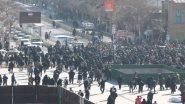
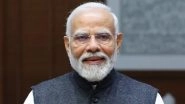


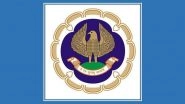
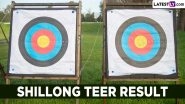


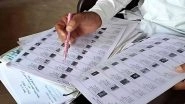

 Quickly
Quickly


